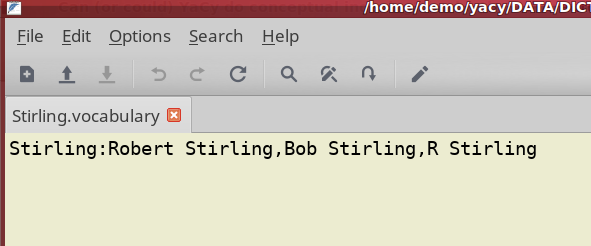Just to give an idea:
Here is an example of the code/markup requirements for an EVENT using Schema.org (i.e the metadata standard used by Google)
{
“@context”: “https://schema.org”,
“@type”: “Event”,
“name”: “Jan Lieberman Concert Series: Journey in Jazz”,
“startDate”: “2025-01-01T19:30”,
“endDate”: “2025-01-01T23:00”,
“location”: {
“@type”: “Place”,
“name”: “Santa Clara City Library, Central Park Library”,
“address”: {
“@type”: “PostalAddress”,
“streetAddress”: “2635 Homestead Rd”,
“addressLocality”: “Santa Clara”,
“postalCode”: “95051”,
“addressRegion”: “CA”,
“addressCountry”: “US”
}
},
“image”: [
“https://example.com/photos/1x1/photo.jpg”,
“https://example.com/photos/4x3/photo.jpg”,
“https://example.com/photos/16x9/photo.jpg”
],
“description”: “Join us for an afternoon of Jazz with Santa Clara resident and pianist Andy Lagunoff. Complimentary food and beverages will be served.”,
“offers”: {
“@type”: “Offer”,
“url”: “https://www.example.com/event_offer/12345_201803180430”,
“price”: “30”,
“priceCurrency”: “USD”,
“availability”: “InStock - Schema.org Enumeration Member”,
“validFrom”: “2024-10-20T16:00”
},
“performer”: {
“@type”: “PerformingGroup”,
“name”: “Andy Lagunoff”
}
}
Example provided by Google:
It includes a few significant facets: type:event, location[address], start date[date]
This is wonderful. The fact that this can be accomplished at all, however, I see a few problems.
I think location by street address is a bit cumbersome as well as less than universal world wide. What about events in the wilderness areas or international waters or a lake or a public park or other places where there is no government assigned postal address. A desert region or whatever. Some Geocode/latitude-longitude is better I think, in many ways.
The main problem with this, though, is, as far as I’m aware, all this (above) metadata would have to be hand coded by something of an expert in this kind of metadata. It puts it largely outside the hands of the general public, or your average web designer.
Essentially, this is just one facet type - EVENT
It is not language independent, which is a HUGE drawback.
Don’t get me wrong, it is great. It is the RIGHT idea, but, is it going to be used?
One of the biggest and best uses for this sort of metadata could be or should be People’s “Me” type pages: Hi I’m Bob and I like cars… Hi I’m Jane and I like cooking…
Well, of course there is Facebook for that sort of thing, wherein lies another problem. Proprietary, commercialized, privacy infringing, lack of creative control.
But Bob and Jane are not very familiar with HTML or metadata structures so they are locked into using proprietary systems like Facebook rather than designing their own web pages from scratch. It has all become too complicated. Who does that anymore?
Compare that with something like this: YaCycode=SDM50FRM AGR …42N075W.LIB534DOCHMs7yebhd8ao
It has none of the drawbacks described above and encodes far more significant data.
I wrote these programs when was it? Well, I last updated the Perl script in 2006
This is merely a bare proof-of-concept effort. Because, no programmers I talked to about it thought it was possible, back in the 90’s, so I had to study computer programming in my spare time for about ten years
I think it is significant that the “backend” consists of two Perl scripts of less than 20kb each.
I would very much love to combine this with YaCy.
I think it is still more-or-less working, but could be vastly improved in many ways.
http://megamapper.com/
